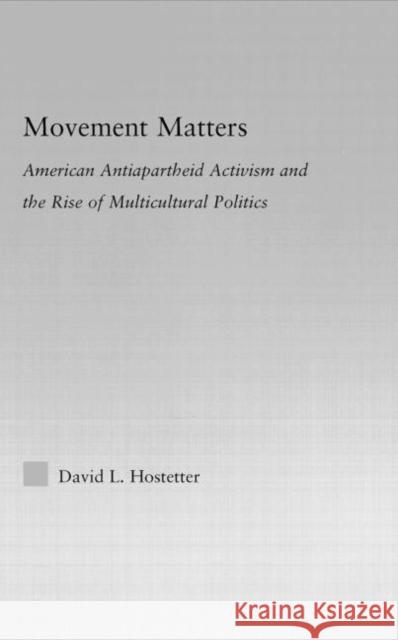Movement Matters : American Antiapartheid Activism and the Rise of Multicultural Politics » książka
Movement Matters : American Antiapartheid Activism and the Rise of Multicultural Politics
ISBN-13: 9780415978118 / Angielski / Twarda / 2005 / 214 str.
Movement Matters : American Antiapartheid Activism and the Rise of Multicultural Politics
ISBN-13: 9780415978118 / Angielski / Twarda / 2005 / 214 str.
(netto: 744,80 VAT: 5%)
Najniższa cena z 30 dni: 730,42
ok. 22 dni roboczych.
Darmowa dostawa!
American organizations that opposed apartheid in South Africa extended their opposition to racial discrimination in the US into world politics. The antiapartheid movement mobilized public opinion with familiar political symbols while increasing African-American influence in the formulation of US foreign policy.
Three conflicts in particular shaped American antiapartheid activism: the debate between those holding an integrationist vision of the civil rights movement versus the advocates of a Pan-Africanist view as expressed in the Black Power movement; the tension between the antiracist credibility American leaders sought to project to the world and the anticommunist thrust of American foreign policy which led to a tacit alliance with South Africa; and the dispute over whether nonviolence or armed liberation provided the best strategy for ending apartheid.
Three antiapartheid organizations that debated and dealt with these conflicts were the American Committee on Africa (ACOA), the American Friends Service Committee (AFSC), and TransAfrica. Novels, plays, movies and music provided a bridge for Americans who strove to understand the struggles of those who lived under apartheid. By extending the moral logic of the civil rights movement, the antiapartheid movement was able to invoke the themes of equality and freedom central to the American civil religion.











